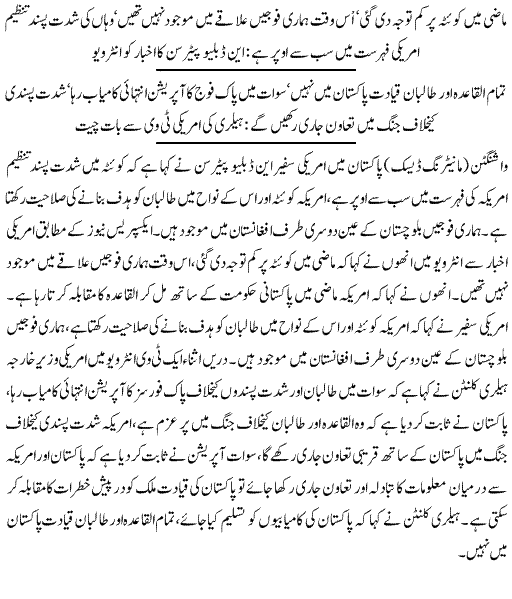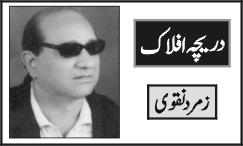The Khilafat Mafia in Pakistan (e.g. Dr Israr Ahmed) and abroad (e.g. Dr Zakir Naik) and Hizb ut-Tahrir keep trumpeting about the imaginary benefits of an imaginary khilafat of all Muslims. Here is a slap on their face:
"Osman, dubbed the "last Ottoman" by the Turkish media, died in the hospital of kidney failure on Wednesday at the age of 97. Osman, the most senior member of the Ottoman royal family, was exiled by the newly established Turkish Republic in the early 1920s with his family. He was not yet 10 when he left his homeland.
He spent much of his life in New York and came to Turkey in 1992 after he was granted “amnesty.” The advent of the Justice and Development Party (AK Party) to power in 2003 changed the mainstream ideology of Turkish governments with respect to the Ottoman dynasty. In 2004, the Turkish government granted Turkish citizenship to Ertuğrul Osman." Source
Analysis by Hasan Nisar:
Ertugrul Osman, who has died aged 97, should, technically speaking, have been addressed as His Imperial Highness Prince Ertugrul Osman Efendi.
Daily Telegraph, Published: 27 Sep 2009
Had events been otherwise his title would have been grander still: His Imperial Majesty Grand Sultan Osman V, Emperor of the Ottomans, Caliph of Islam. As it was, the man who would have been the 45th head of the continent-spanning Ottoman dynasty, founded by Osman I in 1299, lived on the third floor of a rent-controlled flat in New York and was content to be known as plain old Osman.
As a descendant of Abdul Hamid II (who reigned between 1876 and 1909) he was the last-surviving grandson of any serving Ottoman Emperor, and the only remaining scion of the dynasty to have been born in the imperial homeland.
His death marks the end of a story that reached its zenith at the gates of Vienna in 1683. Shortly after that failed siege, Ottoman power began to decline, culminating in its collapse and the establishment of the Turkish Republic under Kemal Ataturk in 1923. The royal family was subsequently expelled, and Osman, who was abroad at the time, did not return to Turkey until 1992.
During the intervening time he refused to take up a Turkish passport, claiming instead to be a citizen of the Ottoman Empire. With the help of a document drawn up by his lawyer he somehow managed to have this official limbo accepted by passport authorities until September 11 2001, when more stringent regulations came into force.
None the less, he was by no means a firebrand exile, never calling for the return of the Sultanate or the overthrow of the democratically elected government in Turkey. On the contrary, he seemed studiously determined to be as uncontroversial as possible, always replying to the question of whether he was in favour of a future Restoration with the simple answer "No".
Ertugrul Osman was born in Istanbul on August 18 1912, the youngest son of Prince Mehmed Burhaneddin and his first wife Aliye Melek Nazliar Hanim, and spent his toddler years roaming the mahogany parquet corridors of the 285-room Dolmabahce Palace, which clings to the banks of the European side of the Bosporus.
Aged 10 he was sent to Vienna to study, and it was there that he heard, in March 1924, of the abolition of the caliphate, which gave the Sultan authority over the world's Sunni Muslims and was the last significant imperial role to be scrapped by Ataturk. The Sultan and his family were sent into exile. "The men had one day to leave," Osman recalled in a recent interview. "The women were given a week."
Osman stayed in Vienna until the outbreak of war in 1939 and then moved to New York. By war's end he was ensconced in a "walk-up" apartment above a restaurant on Lexington Avenue in Manhattan, the only residence in what was otherwise a commercial block.
He lived there with his first wife, Gulda Twerskoy, whom he married in 1947. It was, he admitted, a far cry from the opulent imperial residences in which he had grown up. But instead of growing embittered by his dramatic reversal of fortune, those who met him said Osman assessed his unique situation in understated, often comic tones.
He made his career in the mining business, with the company Wells Overseas, for whom he did indeed frequently travel abroad, particularly to South America. He was on a business trip there in 1974 when the imperial family's exile was repealed and he was told he could apply for Turkish citizenship. "I was in Venezuela when we were granted amnesty," he said later. "We had a mine there. A Turkish ambassador sent me the news: 'Apply to us if you want to be a citizen. We can give you a passport or visa if you want.'"
Osman said he refused the offer, replying: "We do not need amnesty since we have not done anything wrong."
In retirement Osman, who first wife had died in 1985, met Zeynep Tarzi Hanim, an Afghan princess almost three decades younger than he. She too had led the life of a royal exile, after her uncle King Amanullah was toppled in 1929. She had moved with her family to Istanbul before heading to New York in 1971, where she carved out a niche in the fashion world by selling Turkish designs.
Though Osman was worried about the age gap between himself and Zeynep Tarzi, she did not see it as a problem and concentrated his mind by issuing an ultimatum: "Eventually I told him, 'If you won't marry me, I'll marry someone else.' It was an empty threat, but it worked." They married in 1991.
A year later he returned to the land of his birth for this first time in more than half a century. He had been extended an official invitation by the Turkish government and made headline news as he touched down.
Although he granted interviews, he preferred to keep a low profile as he toured the landmarks from which his grandfather had ruled a century earlier. During his trip to the Dolmabahce Palace, for example, he refused a private visit in favour of a public tour group: "I didn't want a fuss," he said. "I'm not that kind of person."
In 1994, with the death of Mehmed Orhan, son of Prince Mehmed Abdul Kadir, Osman became the eldest surviving member of the Ottoman dynasty, and heir – in theory at least – to the title of Pretender to the Sultanate. In fact, he was quite happy to admit that "democracy works well in Turkey".
Things were working less well at home in New York, where the fabric of his modest flat was wearing thin. Four years ago his wife narrowly avoided being struck by falling plaster and they began a dispute with the landlord, to whom – having occupied the flat for so long – they had to pay only $350 in rent each month.
In his final years, Osman finally accepted a Turkish passport, using it to return on several occasions to Istanbul. "I do not have much time left. I want to be in Istanbul all the time," he said.
It was there last year that his wife gave him a surprise birthday party in the garden of a villa on the Bosporus owned by her brother, Mahmut Tarzi.
It was also in Istanbul that Osman was placed in intensive care a week ago, and died on September 23.
According to Turkish reports he will be buried near the tombs of Sultans Mahmut II and Abdulhamit II in the Cemberlitas district of the city.
He is survived by his wife.
Read more...









 For optimum results, we need to make rational assessments in the present, not ruefully lament much later having been misled by attractive slogans, hypothetical promises, and alluring equivocation
For optimum results, we need to make rational assessments in the present, not ruefully lament much later having been misled by attractive slogans, hypothetical promises, and alluring equivocation







 The political parties and their leaders bear greater responsibility for sustaining the growth of democracy in Pakistan. This will require them to perform better in governance, honour their part of the social contract with the people and respect each other’s political mandate
The political parties and their leaders bear greater responsibility for sustaining the growth of democracy in Pakistan. This will require them to perform better in governance, honour their part of the social contract with the people and respect each other’s political mandate





















